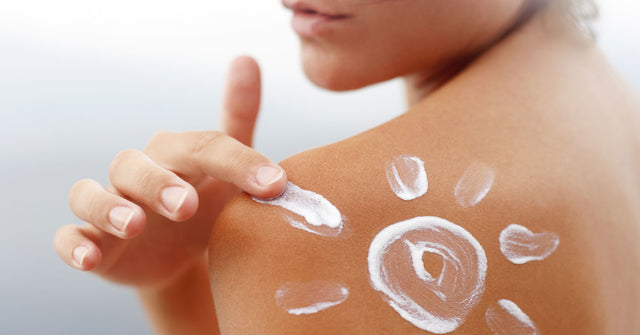Niacinamide vs. Hyaluronic Acid Overview
Having a skincare regimen is key to achieving healthy glowing skin and the success of a skincare routine depends mainly on the products used. Some of the most popular ingredients in skincare nowadays are hyaluronic acid and niacinamide. Both are essential and beneficial, but which ingredient is better? Read on to learn more about niacinamide vs. hyaluronic acid, and determine which product brings more advantages.
What is Hyaluronic Acid?
Hyaluronic acid is a naturally occurring substance in the human body. It is primarily found in connective tissues, eyes, and the skin. Hyaluronic acid is known for its ability to retain moisture and the substance plays a major role in wound healing by regulating inflammation and redirecting blood flow to damaged tissue. In skin care, HA is used to plump and hydrate the skin and minimize the appearance of fine lines and wrinkles. Human skin contains more than half[1] of the hyaluronic acid in the body. As we age, the levels of HA start decreasing, which can lead to dryness and more visible signs of aging.
Can Hyaluronic Acid Treat Acne?
People with acne can benefit from products containing hyaluronic acid. Acne may result from overproduction of oil by sebaceous glands. Excessive production of oil can clog pores and contribute to breakouts. Controlling sebum production can prevent the clogging of the pores and the development of acne and zits.
A randomized controlled trial from the Journal of Investigative Dermatology found[2] that hyaluronic acid reduces fat synthesis in sebaceous glands.
This substance can also help control acne by improving the skin barrier and providing hydration and nourishment. A better skin barrier function is necessary to reduce irritation and redness.
If you’re struggling with acne, combine HA moisturizers with acne serums such as Zeroblem Blemish Treatment Serum. This highly concentrated serum is excellent in healing acne without stripping your skin’s natural oil. It deeply cleanses and improves the overall condition of the skin. Zeroblem also has a calming effect that reduces irritation and skin redness.
Further, not only does hyaluronic acid help acne issues, but it also helps manage acne scars. Studies show[3] that HA gel injections are effective at treating atrophic acne scars.
How Hyaluronic Acid for Works Lips?
Hyaluronic acid for lips works well with dry, thinning lips caused by depleting collagen. As you age, your collagen production decreases making your lips appear less plump and elastic. Hyaluronic acid works by attracting and retaining moisture. In turn, your lips become well-hydrated, plump-looking, and smooth. The main goal of HA in lip products is to provide a fuller look and long-lasting hydration.
Luscious lips require proper care and lip products like the Sundefend Lip Balm SPF 15 can be your best ally in healing and soothing sore and chapped lips. This lip balm provides all-day hydration and protects your lips from sunburn.
Hyaluronic Acid and Different Skin Types
Although the word “acid” in the name may sound harsh, HA is a gentle and nourishing ingredient that works for different skin types. Here’s what to expect from HA when applied to different types of skin:
-
Dry skin: thanks to its humectant properties, HA draws moisture from the environment and penetrates deep into the skin. Hyaluronic acid reduces dryness[4], improves skin elasticity, and makes skin appear healthier and suppler.
-
Oily skin: by providing enough hydration, hyaluronic acid decreases the need for the skin to overproduce sebum (oil) to compensate for dehydration. Oily skin needs hydration and a hyaluronic acid moisturizer can provide enough moisture without clogging pores.
-
Acne-prone skin: hyaluronic acid provides hydration without causing breakouts. It soothes inflammation and supports the skin’s natural barrier to promote healing and decrease the severity of acne.
Hyaluronic Acid Benefits
Hyaluronic acid can help you in many ways. Here are some of the most significant benefits of HA:
-
Hydration: hyaluronic acid attracts and retains moisture
-
Minimizes the appearance of wrinkles: by keeping the skin nourished and hydrated, hyaluronic acid improves firmness minimizing the visibility of fine lines and wrinkles[5].
-
Improves skin elasticity: hyaluronic acid fills your skin with moisture, thus improving its elasticity and tightening the overall complexion.
-
Reduces eczema: hyaluronic acid can alleviate mild to moderate eczema symptoms by hydrating your skin and improving its barrier.
What is Niacinamide?
Contexting niacinamide vs. hyaluronic acid is a way to recognize its benefits and advantages. This is crucial in determining which product suits your skin.
Niacinamide is a form of vitamin B3 that is water-soluble and a good addition to all skincare routines. It is also beneficial in the function of fats and sugars, and maintaining healthy cells.
What are the Benefits of Niacinamide?
Niacinamide offers several important benefits, including:
-
Reduces inflammation: niacinamide can ease inflammation [6] and calm redness caused by eczema, acne, and rosacea. It can also soothe inflammation due to harsh skincare products such as exfoliants.
-
Improves hydration: enhances the function of the skin’s lipid barrier, a layer of oil and water that protects the skin.
-
Minimizes pores: keeps the skin smooth and clear and regulates oil production, thereby reducing the visibility of pores.
-
Protects against sun damage: may concurrently rebuild healthy skin cells while protecting them from damage caused by the sun’s harmful UV rays.
-
Manages hyperpigmentation: evidence shows[7] that niacinamide may lighten dark spots by increasing collagen production. Potent serums such as ACE-Ferulic Rejuvenating Serum can help fight against discolored skin patches. This serum provides antioxidant protection, slows skin aging, and minimizes hyperpigmentation.
-
Decreases visibility of fine lines and wrinkles: by protecting the skin against sun damage, niacinamide helps prevent or reduce the severity of signs of aging, such as fine lines and wrinkles.
Niacinamide and Different Skin Types
Niacinamide works well for different skin types. Here’s what to expect:
-
Dry skin: niacinamide improves the function of the skin’s barrier, decreasing the loss of moisture and improving hydration. It soothes and calms dry and irritated skin. Moisturizers like Infusoderm Deep Hydration Daily Moisturizer can help ease symptoms of dry skin. This moisturizer refreshes and revitalizes your complexion by providing deep hydration, nourishment, and brightening effect.
-
Oily skin: niacinamide is good for dry skin and it also helps people with oily skin by regulating sebum production[8]. Niacinamide can balance oil levels and decrease the uncomfortable “shiny” appearance.
-
Acne-prone skin: Niacinamide decreases redness and inflammation to calm active breakouts and can also prevent future acne by regulating oil production. It supports the healing process by improving skin barrier function. Niacinamide works great with other compounds[9] and anti-acne medications.
When to Use Niacinamide?
How frequently you can use this depends on your preferences. This compound can be used in the morning and nighttime skincare routine. It’s a powerful antioxidant if used in the morning before UV exposure. It’s also possible to use niacinamide at night to allow its anti-inflammatory effects to work while you sleep. Both options are okay. You can customize your skincare routine and achieve the best possible results.
Can Niacinamide Cause Acne?
Can niacinamide cause acne? Some people may experience irritation and breakouts after using niacinamide. However, it is not likely to cause these conditions because niacinamide doesn’t affect the skin in a way that triggers purging. Breakouts may appear as a temporary side effect, but most people don’t experience this issue. Consult your dermatologist if your breakouts are becoming persistent.
Frequently Asked Questions
Is it better to use hyaluronic acid or niacinamide?
The critical context of niacinamide vs. hyaluronic acid depends on the specific skin concerns. On the one hand, hyaluronic acid is excellent for skin hydration and achieving the plump effect. On the other hand, niacinamide is beneficial for alleviating inflammation, minimizing pores, and balancing oil production.
Can I use niacinamide and hyaluronic acid at once?
Niacinamide and hyaluronic acid can be used together for complementary effects. Since both compounds are water-based ingredients, they make a good match. You can use them with other ingredients to address multiple skin concerns effectively. To get the most from the combination of these ingredients, apply them in the right order. Ideally, apply hyaluronic acid first[10] and niacinamide after.
Do I need hyaluronic acid if I use niacinamide?
Although niacinamide can help with hydration to some extent, hyaluronic acid delivers a more intensive and immediate hydration boost. If your sky is dry, incorporating hyaluronic acid into the skincare routine alongside niacinamide may offer additional benefits. Ultimately, it depends on the specific needs of your skin.
What should you not mix niacinamide with?
You shouldn't mix niacinamide with products containing alpha hydroxy acids (AHAs) and beta hydroxy acids (BHAs). Combining these ingredients may cause irritation. AHAs and BHAs have a pH of 3.0 to 4.0, but niacinamide’s pH is higher and ranges from 5.0 to 7.0. When you combine these ingredients[11], the pH value of niacinamide will decrease while the AHA/BHA pH will increase. As a result, the product’s efficacy is altered, and you're more susceptible to irritation.
Additionally, you shouldn't mix niacinamide with high levels of Vitamin C.
Is it better to use hyaluronic acid or niacinamide at night?
Both niacinamide and HA are useful for nighttime use. If you need to choose one, the best thing to do is consider your primary skin concern. For example, you should use niacinamide at night if your goal is skin repair and balancing. Go for hyaluronic acid if you’re focusing on hydration. Most people use hyaluronic acid in the morning and niacinamide before bedtime. That way, the skin is well-hydrated throughout the day and receives treatments at night.
Takeaway
The discussion about niacinamide vs. hyaluronic acid should not be as complex as it sounds. These two skincare ingredients are both beneficial and have specific targets. As mentioned, HA helps keep your skin hydrated, promotes collagen production, and boosts elasticity. Niacinamide regulates oil production, promotes hydration, and minimizes pores. What is in your skincare routine mainly depends on your skin condition. The best option is to choose the ingredient that suits your needs. It is also beneficial to always ask your doctor whether your choices are the right ones for you.
References
1] ↑https://www.ncbi.nlm.nih.gov/pmc/articles/PMC3583886/
2] ↑https://www.ncbi.nlm.nih.gov/pmc/articles/PMC8322246/
3] ↑https://pubmed.ncbi.nlm.nih.gov/28163068/
4] ↑https://pubmed.ncbi.nlm.nih.gov/30358630/
5] ↑https://www.ncbi.nlm.nih.gov/pmc/articles/PMC3970829/
6] ↑https://www.ncbi.nlm.nih.gov/pmc/articles/PMC1808598/
7] ↑https://www.ncbi.nlm.nih.gov/pmc/articles/PMC3142702/
8] ↑https://pubmed.ncbi.nlm.nih.gov/16766489/
9] ↑https://pubmed.ncbi.nlm.nih.gov/38299457/
10] ↑https://puresense.co.in/blogs/how-tos/layering-niacinamide-with-hyaluronic-acid-and-vitamin-c#jump-4
11] ↑https://kimnicholsmd.com/these-are-the-skincare-ingredients-you-should-and-shouldnt-mix/
Mentioned in this article
More stories

Understanding Sunburn Blisters: Symptoms and Treatment









